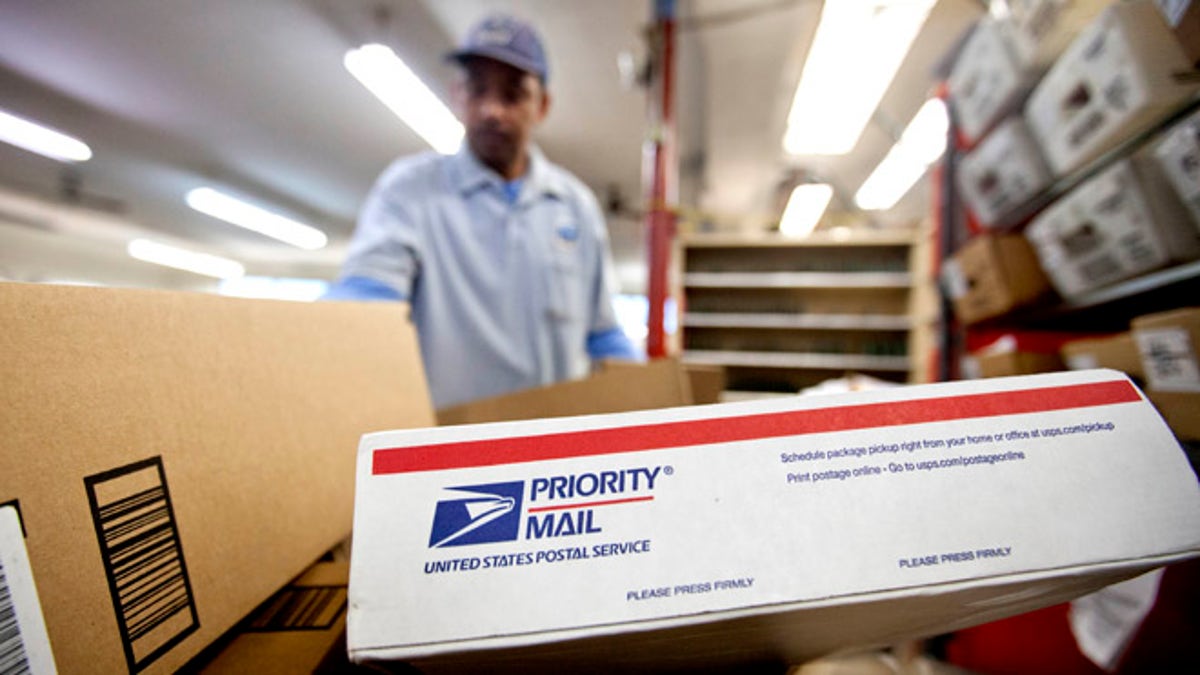
Feb. 7, 2013: In this file photo, packages wait to be sorted in a Post Office as U.S. Postal Service letter carrier Michael McDonald, gathers mail to load into his truck before making his delivery run, in Atlanta. (AP)
The debt-ridden U.S. Postal Service is looking to expand its service footprint from well beyond its core mail-delivery operations -- everything from grocery delivery to payday loans.
But the quasi-governmental agency's hunt for badly needed revenue streams is coming at the expense of private-sector competitors, undercutting the basic principles of the American free-market system, critics contend.
In October, the Postal Regulatory Commission signed off on a plan allowing the Postal Service to deliver groceries in San Francisco, working with mega online retailer Amazon.com to do it. The test project eventually could be expanded nationwide.
While the commission capped annual revenue from the USPS' new delivery service at $10 million, for now, free-market advocates are concerned about the incursion on the private marketplace by a competitor that already holds a government-granted monopoly on mail delivery.
"We think this is a huge overreach on the part of the USPS," David Williams, president of the Taxpayers Protection Alliance, told Watchdog.org. "We already have companies that are doing this (grocery delivery). The Postal Service should deliver the mail, to get back to its core business, not this mission creep."
In its approval order, the Postal Regulatory Commission said the "record contains no indication" that USPS' involvement in grocery delivery would disrupt the market, but the results are not final.
"The Postal Service began its Customized Delivery Test Market Test on November 1, 2014. At the present time, the Commission has not evidence of an adverse competitive impact," Gail Adams, spokeswoman for the commission said in an email in response to Watchdog.org's question.
Meanwhile, compounding the Postal Service's financial issues, the agency reportedly is looking to replace its aging vehicle fleet. The Wall Street Journal reports the Postal Service is seeking 180,000 new delivery vehicles, at between $25,000 and $35,000 apiece.




